
DHAKA, July 16 (Xinhua) -- At least nine people were killed and hundreds were injured in riots erupted since Monday surrounding war crimes verdict against a high-profile leader of one of Bangladesh's largest Islamic party.
The International Crimes Tribunal (ICT)-1 pronounced the verdict in capital Dhaka Monday afternoon, awarding the sentence of imprisonment till death to Bangladesh Jamaat-e-Islmai party's former chief Ghulam Azam.
Sources said at least four people were dead and dozens others including cops injured Tuesday during the early hours of a countrywide dawn-to-dusk hartal organized by Jamaat in protest of the verdict against Azam, whom his party men considered a spiritual leader.
Two Jamaat activists Jamaat were killed in Satkhira district, some 240 km southwest of capital Dhaka, where dozens of shots were fired by the law enforcers Tuesday.
Mollah Jahangir Hossain, the district's police chief, told Xinhua that "We've come to know that two Jamaat men were killed."
He said nine policemen were injured, one critically.
Jamaat men swooped on police with lethal weapons as the latter started to remove the road barricades, Hossain said, adding Jamaat men opened fire on police, forcing the law enforcers to retaliate with live shots.
A Jamaat spokesman was not available for comment in this connection.
Another death was reported from Gazipur, some 37 km from capital Dhaka, where a nine-year-old girl died after a bus chased by pickets ran over her while she was standing at highway intersection.
Apart from this, an elderly man was killed by brick chips hurled by pickets during hartal hours in Dinajpur district, some 338 northwest of capital Dhaka.
Police officers were not available for comments on the two deaths.
Five others were killed overnight in stray incidents of violence.
Scores of vehicles across were smashed or set on fire across the country on Monday and the early hours of Tuesday.
And the strikes have been called by conflicting political parties.
While Jamaat enforced the general strike rejecting the verdict and demanding release of its leaders, leaders of the Gonojagoron Mancha (literally means mass awakening stage), a movement demanding death penalty for all war criminals, have called the hartal demanding capital punishment to Azam.
Jamaat, allegedly collaborated with the Pakistani forces in 1971 to prevent an independent Bangladesh, says 91-year-old Azam is the victim of a political vendetta.
Although the Gonojagoron protesters reportedly refrained from any violent act, the hartal crippled normal life and business transactions, and many main markets and educational institutions were closed.
Private cars were rarely seen on Dhaka roads but a large number of rickshaws appeared in the usually bustling streets along with public transport.
In capital Dhaka and elsewhere in the South Asian country, scores of cocktail and handmade bombs were exploded, leaving dozens, including law enforcers, injured.
Riot police shot rubber bullets and lobbed tear gas shells to disperse stone-throwing pro-hartal activists who attempted to block roads and bring out procession along major city streets, disrupting traffic.
Police detained dozens of Jamaat activists.
Jamaat Tuesday again called a countrywide dawn-to-dusk hartal for Wednesday as a tribunal in Dhaka, which is holding trial of Jamaat Secretary General Ali Ahsan Mohammad Mojaheed for wartime offences, will deliver its verdict Wednesday.
Jamaat said Prime Minister Sheikh Hasina's ruling Bangladesh Awami League (AL) party has targeted the party to split the 18- party opposition alliance led by ex-Prime Minister Khaleda Zia, which has been staging demonstration demanding the restoration of the non-party caretaker system to oversee the next general elections slated for early 2014.
But the Bangladesh Awami League party denies the accusations, saying the opposition parties are creating anarchy in the name of political programs to foil the ongoing war crimes trial.
After returning to power in January 2009, Sheikh Hasina, the daughter of Bangladesh's independence hero Sheikh Mujibur Rahman, established the first tribunal in March 2010, almost 40 years after the 1971 fight for independence from Pakistan to castigate those committed crimes against humanity during the nine-month war.
Since Jan. 21 this year, two tribunals dealing with the war crime cases have delivered verdicts in five cases including that of Ghulam Azam. One former and two current leaders of Jamaat were sentenced to death while another Jamaat high-up received life imprisonment.
In February, at least 76 people, including several police men and dozens of Jamaat leaders and activists were killed and hundreds of others injured in riots erupted after a tribunal awarded death sentence to top Jamaat leader Delwar Hosssain Sayeede for war crimes in 1971.

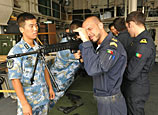
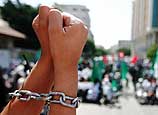
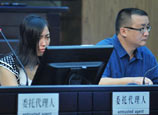


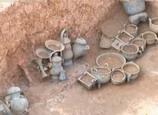

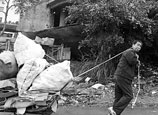
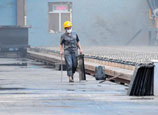






 College student car models show youthful vigor
College student car models show youthful vigor


![]()
